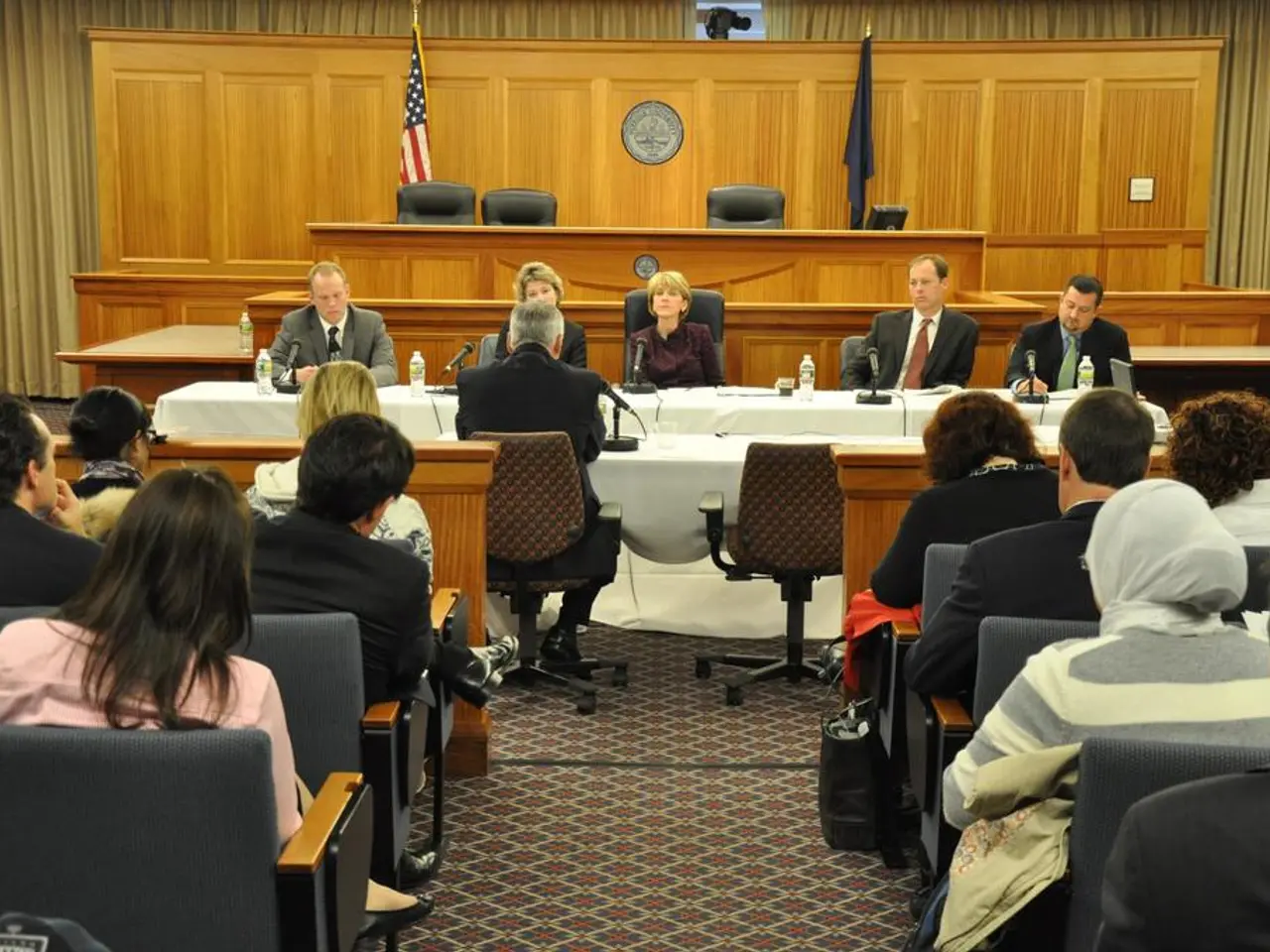Cracking Down on Digital Haters: Nationwide Raids Address Online Hate Speech and Extremism
Over 170 online operations executed by authorities to enforce internet regulations
Take a seat, folks! Here's the skinny on the ongoing offensive against digital hate. Law enforcement agencies across Germany are launching a widespread crackdown on those spreading hate and inciting violence online. Reports suggest that over 170 raids are being executed, primarily targeting individuals responsible for far-right statements, but also covering criminal insults, extreme religious postings, and occasionally left-wing radical posts.
It all began bright and early this morning. The Federal Criminal Police Office has taken the lead in tracking down and apprehending these so-called "digital arsonists," who think they can hide behind their screens. North Rhine-Westphalia's Interior Minister, Herbert Reul, had this to say about the operation: "These internet trolls can't hide behind their phones or computers. They need to remember that what they wouldn't do in person, they shouldn't do online."
In North Rhine-Westphalia, approximately fourteen cases are at the forefront of this operation, with numerous police authorities joining forces in cities like Bielefeld, Bonn, Düsseldorf, Dortmund, Gelsenkirchen, Hagen, Cologne, and Münster. According to the latest intel, two search warrants are planned, and a total of fourteen potential offenders will be questioned.
Surge in Online Hate Speech
So what exactly prompted this massive police operation? Well, it seems that hate speech has been on the rise in Germany, with an estimated 10,732 criminal offenses related to "hate postings" documented in 2020, a 34% increase compared to 2019. Some suspects have been vocal on platforms like X, posting statements such as "Heil Hitler!! Again. We are Germans and a successful nation. Male foreigners out."
A recent increase in online hostility has left many people questioning the boundaries between hate and opinion. As Minister Reul put it, "Many have forgotten the distinction. However, it's simple - if you wouldn't do something IRL (in real life), don't do it online."
Anti-Hate Speech Initiatives in Germany
This isn't the first or the last such operation launched by German authorities in response to the escalating issue of online hate speech. Various measures have been taken in an effort to address and combate this digital menace, such as:
- Enforcement actions: The German government is constantly working to enforce laws against incitement, extremist content, and hate speech. This includes nationwide police operations, which have become a regular occurrence.
- Legal frameworks: German law enforces both criminal and civil penalties for the most serious cases of hate speech, helping to establish clear limits on freedom of expression.
- Multi-stakeholder initiatives: Partnerships between government, civil society, internet industry, academia, and political bodies are essential for sharing best practices and strengthening responses to online hate speech.
- Public awareness campaigns: Initiatives like Deutsche Telekom's 'Open your eyes' campaign strive to raise awareness about the impact of hate speech and encourage users to take a stand against it.
- Research and dialogue: Organizations like RUSI and the Institute for Strategic Dialogue conduct research on hate speech dynamics and host roundtable discussions to inform policy responses effectively.
With these initiatives in place, it's clear that Germany is taking a firm stand against online hate speech and extremism, demonstrating that our digital world is no safe haven for bigotry and intolerance. Stay tuned for updates on the ongoing operations, and remember - let's all work together to create a kinder, more inclusive digital community!
The Commission has also been consulted on the draft directive, as politics surrounds the ongoing efforts to combat online hate speech and extremism in the general news. The German government is taking multiple actions in this realm, including enforcing laws, establishing legal frameworks, collaborating with various stakeholders, launching public awareness campaigns, and conducting research and dialogue.







